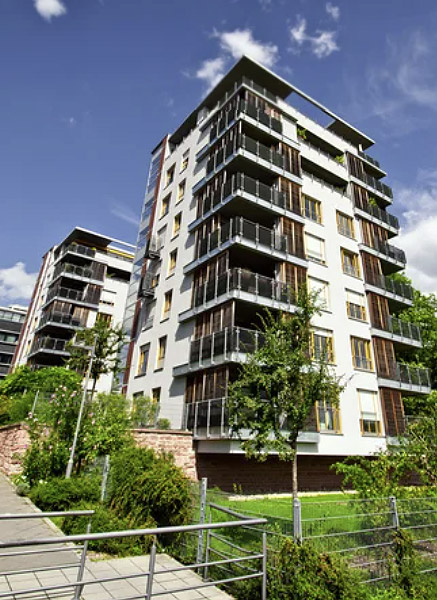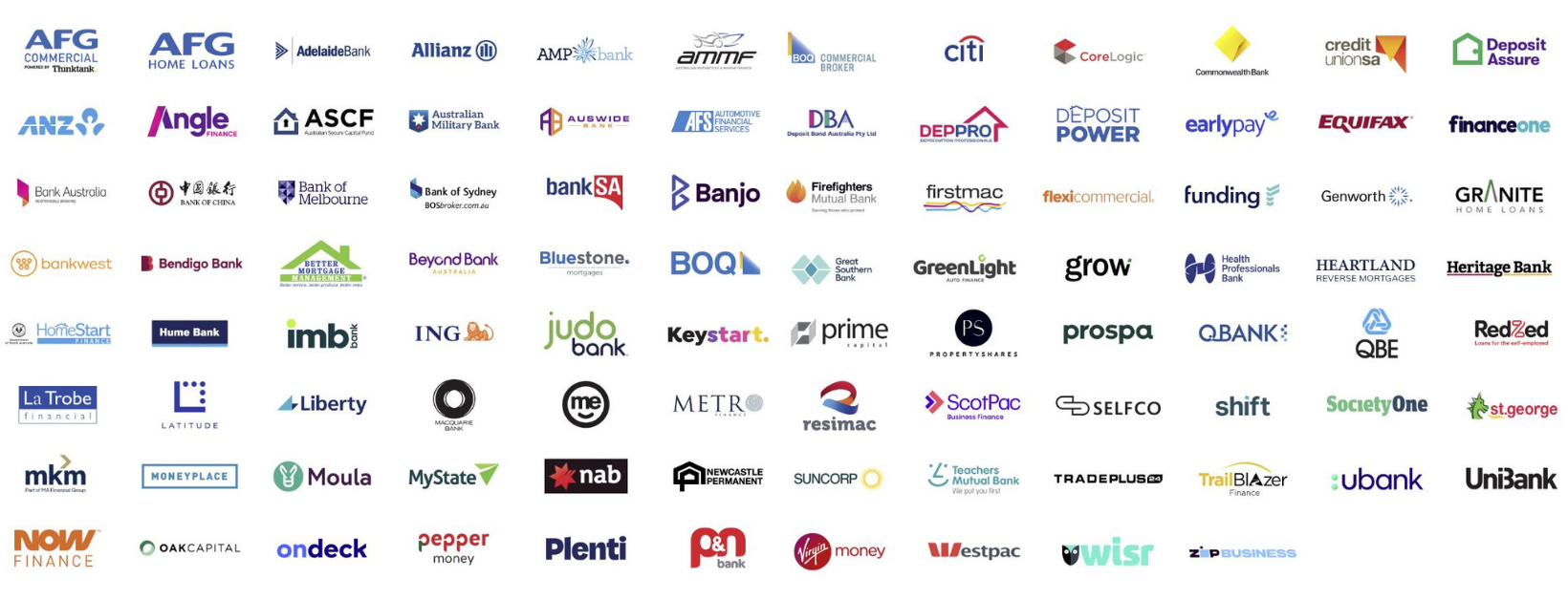Investing in property can often be quite daunting, and can leave you with lots of questions. It’s important to know your options so you can make an informed decision when looking at investment property loans. Whether you’re looking to first get into the investment property market or you’re a seasoned investor ready to grow your portfolio. Our experienced Investment property loan brokers can help you through the whole process so that you know your investment will work for you.
Investing in property
When making the decision to invest in property there are a number of things to consider such as the cost of maintaining the property in relation to the income received. One thing many property investors sometimes overlook is the cost associated with investing in property.
It’s important to consider the ongoing costs like interest repayments, strata fees, maintenance, insurances and other costs when searching for a property as these can all have an effect on how you repay your loan and the income you earn on this investment. When the cost of owning a property is higher than the income it produces, then your investment is negatively geared, or making a loss. This loss can be offset against your income, reducing your income tax bill.
40+ Lenders to choose from
Wide Variety of Loan Products


16+ Years Of Experience


Tweed Coast Investment Loans
investment home loans
Applying for an investment property loan closely follows the same process as that of applying for a owner-occupied property. The loan application process will take into account your income, expenses, credit history and how much of a deposit you have in order to determine your borrowing power.
Interest only loans
An interest only loan is exactly what it sounds like. You only pay the interest on the loan instead of making loan repayments plus interest. While an interest only loan has it benefits it also has its disadvantages that need to be considered when choosing your investment loan features. Some benefits and disadvantages are:
Benefits:
Lower repayments for a set amount of time due to paying interest only.
Might be Beneficial for investors who are looking to hold the asset for a shorter period of time and plan on selling the property for higher than they bought it while paying out the loan and keeping the extra equity.
Can free up cashflow for use in other areas of your life.
Disadvantages:
Your interest rate could be higher than that of principal and interest loans.
Your loan principal is not decreasing meaning you will need to pay this off at a later date.
Your repayments will increase once the interest only period expires, which can add financial strain.

Above are Lenders and support businesses available to us, specific accreditations are provided as part of our loan process
What are the benefits of buying an investment property
Australians are among the most active property investors in the world, with an average of one in every three new mortgages each month arranged for people to buy an investment property. Most of these investors are ordinary people with ordinary jobs earning ordinary incomes. So, why is property investment so popular? Below are the benefits to buying an investment property:
Capital Growth
Capital growth is the increase in value of property over time and the long term average return for Australian residential property is about 9% a year. Importantly, because property markets move in cycles, property values go through periods of stagnation as well as decline. This is why taking an investment view of at least 10 years is important. Note: if your investment property increases by 7.5% a year, over a 10 year period it will double in value.
Rental Income
Rental income, also known as yield, is the rent an investment property generates. You can calculate this by dividing the annual rent by the price paid for the property and multiplying it by 100 to produce a percentage figure. As a general rule, more expensive properties generate lower yields than more moderately priced properties. There is also usually a direct, inverse relationship between capital growth and rental income. Those properties producing a lower rental yield will often deliver greater capital growth over the long term.
Tax Benefits
The Federal Government allows you to offset against your taxable income any losses you incur from owning an investment property. For example, if the amount you receive in rent from tenants is $5,000 less than the cost of servicing the mortgage, and paying rates, water and other fees associated with the property, at the end of the year you can add that $5,000 to the amount of income on which you don’t have to pay tax. If you work as an employee, with income tax automatically deducted from your pay, this means you’ll receive a refund from the Australian Taxation Office (ATO) after the end of the financial year.
Low volatility
Property values generally fluctuate less than the stock market. Many investors say they experience greater peace of mind for this reason.
Leverage
Property enables far greater leverage than many other investments. For example, if you have $100,000 in savings, you could invest it in a portfolio of shares, or use it to buy a property worth $500,000 by taking out a mortgage for $400,000. If shares go up by 10% during the year, your share portfolio would be worth $110,000 and you would have gained $10,000. If property goes up by 10% during that same year, your property would be worth $550,000 and you would have gained $50,000.

Refinancing to invest
refinancing investment loan
You don’t need a big salary to invest in property. If you are buying to invest, lenders will take rental income as well as your own income into their assessment. If you already own your home and have since earnt some equity in it. You may be able to use this equity to refinance your existing home loan to serve as a deposit for your new investment property. This means that you can buy an investment property without having to find any additional cash.
Refinancing your home loan to use the equity you have earned is a great way to make a down payment on an investment property and is often how establish property investors grow their portfolio. As your investment property gains equity you can then use that to buy another investment property, hence growing your investment portfolio.
Investment loan FAQ
What’s the difference between an investment loan and an ordinary home loan?
Most of the same types of home loans and loan features apply for investors as for owner occupiers. Some lenders may charge higher rates for investment properties if the associated risks are higher.
Can I use equity in my home as a deposit for an investment property?
Many an investor has started out by utilsing the equity of their own home. Banks will usually accept equity in a home (or other property) as additional collateral against which they are prepared to lend. This means you could potentially borrow the full purchase price of the property, as well as all costs (stamp duty and other fees) without having to contribute any cash. The risk in using your home as collateral is that if you can’t fund the mortgage for the investment property, the investment property and your home are at risk. Contact Davies Home Loans to discuss your options.
What fees/costs should I budget for?
There are a number of fees involved when buying a property. To avoid any surprises, the list below sets out all of the usual costs:
Stamp Duty – This is the big one. All other costs are relatively small by comparison. Stamp duty rates vary between state and territory governments and also depend on the value of the property you buy. You may also have to pay stamp duty on the mortgage itself.
Legal/conveyancing fees – Generally around $1,000 – $1500, these fees cover all the legal rigour around your property purchase, including title searches.
Building inspection – This should be carried out by a qualified expert, such as a structural engineer before you purchase the property. Your Contract of Sale should be subject to the building inspection, so if there are any structural problems you have the option to withdraw from the purchase without any significant financial penalties. A building inspection and report can cost up to $1,000, depending on the size of the property.
Pest inspection – Also to be carried out before purchase to ensure the property is free of problems, such as white ants. Your Contract of Sale should be subject to the pest inspection, so if any unwanted crawlies are found you may have the option to withdraw from the purchase without any significant financial penalties. Allow up to $500 depending on the size of the property. We know qualified inspectors and can refer you to the appropriate professional in your area.
Lender costs – Most lenders charge establishment fees to help cover the costs of their own valuation as well as administration fees. We can let you know what your lender charges but allow about $600 to $800.
Moving costs – Don’t forget to factor in the cost of a removalist if you plan on using one.
Lenders Mortgage Insurance – If you borrow more than 80% of the purchase price of the property, you’ll also need to pay Lender Mortgage Insurance.
Mortgage Protection Insurance – Mortgage Protection Insurance covers you for monthly expenses if you the borrower is unable to make repayments due to illness, loss of job, injury, or death. You may also choose to take out If you buy a strata title, regular strata fees are payable.
Ongoing costs – You will need to include council and water rates along with regular loan repayments. It is important to also take out building insurance and contents insurance. Your lender will probably require a minimum sum insured for the building to cover the loan, but make sure you actually take out enough building insurance to cover what it would cost if you had to rebuild. Likewise, make sure you have enough contents cover should you need to replace everything if the worst happens. We can provide both home building and contents insurance.
You will also need to take into consideration any body corporate or strata costs associated with the property.
Landlord’s insurance provides standard building and contents cover plus cover for theft or malicious damage to the property by tenants and covers loss of rent in certain circumstances. It also covers the owner’s liability (e.g. if a tradesperson is injured while working on the property). Landlord’s insurance is an affordable extra safeguard and strongly recommended for all investors. We also provide competitive Landlords Insurance.

Experienced Investment loans brokers
Buying an investment property and starting your portfolio is exciting and requires specialist knowledge so that you can get an investment property loan with a competitive rate that helps produce a return on your investment. Our team prides itself on being able to guide you through the loan process from start to finish.
At Davies Home Loans, our experienced mortgage brokers can help you find a loan that suits your individual needs. We have access to a wide variety of lenders who offer a range of different loan options and features. Give us a call or get in touch to learn more about how we can help make your investment property dreams come true.

Financial Calculators
When looking to get into the property market or refinancing your home the first step is to determine how much you can borrow. Our Financial Calculators allow you to get an estimate of your borrowing power, compare loans, and calculate your potential repayments.
Borrowing Power Calculator
Determine how much you could borrow based on your income, expenses and other debt.
Loan Comparison Calculator
Enter both your current loan and the new loan amounts, interest rates & fees to compare which loan will suit you.
Loan Repayment Calculator
Calculate your monthly, fortnightly or weekly payments required to pay your loan.
